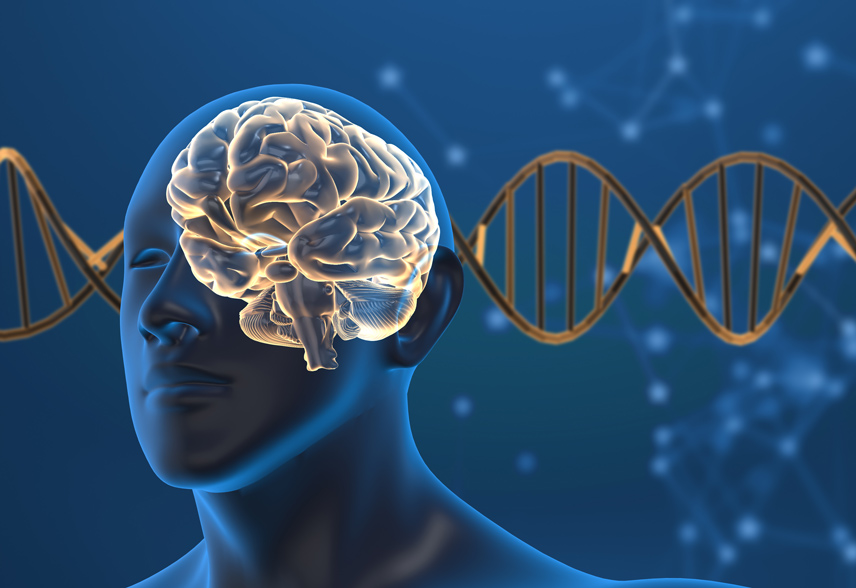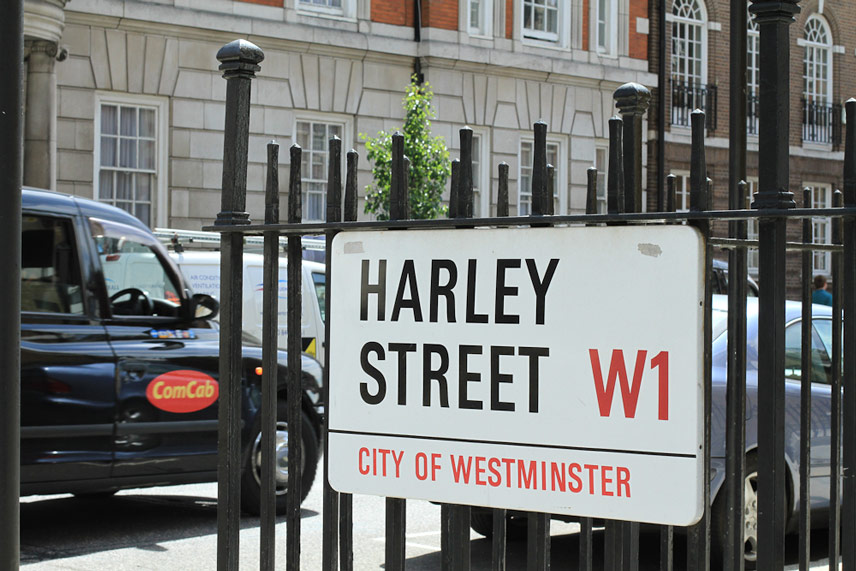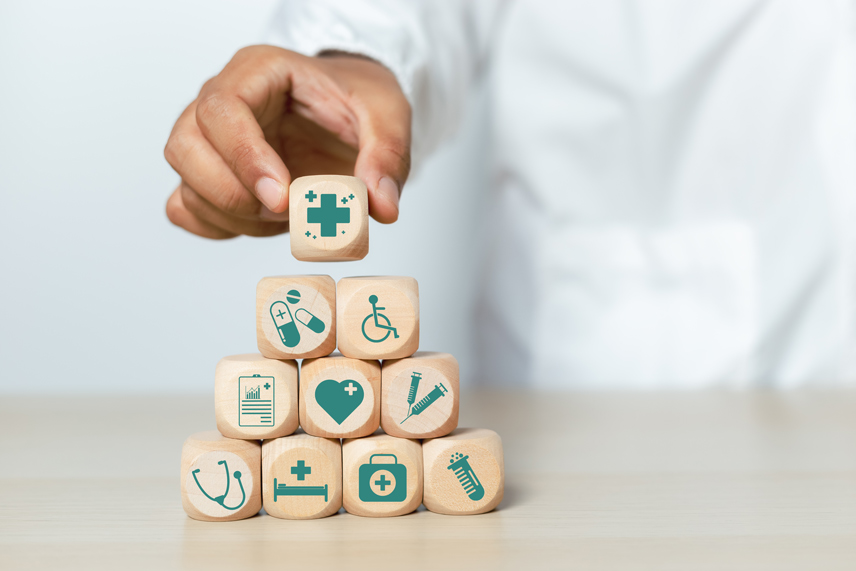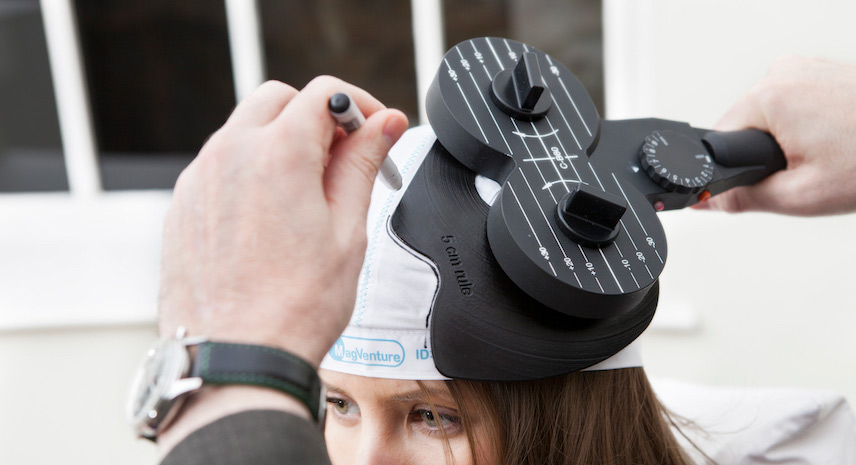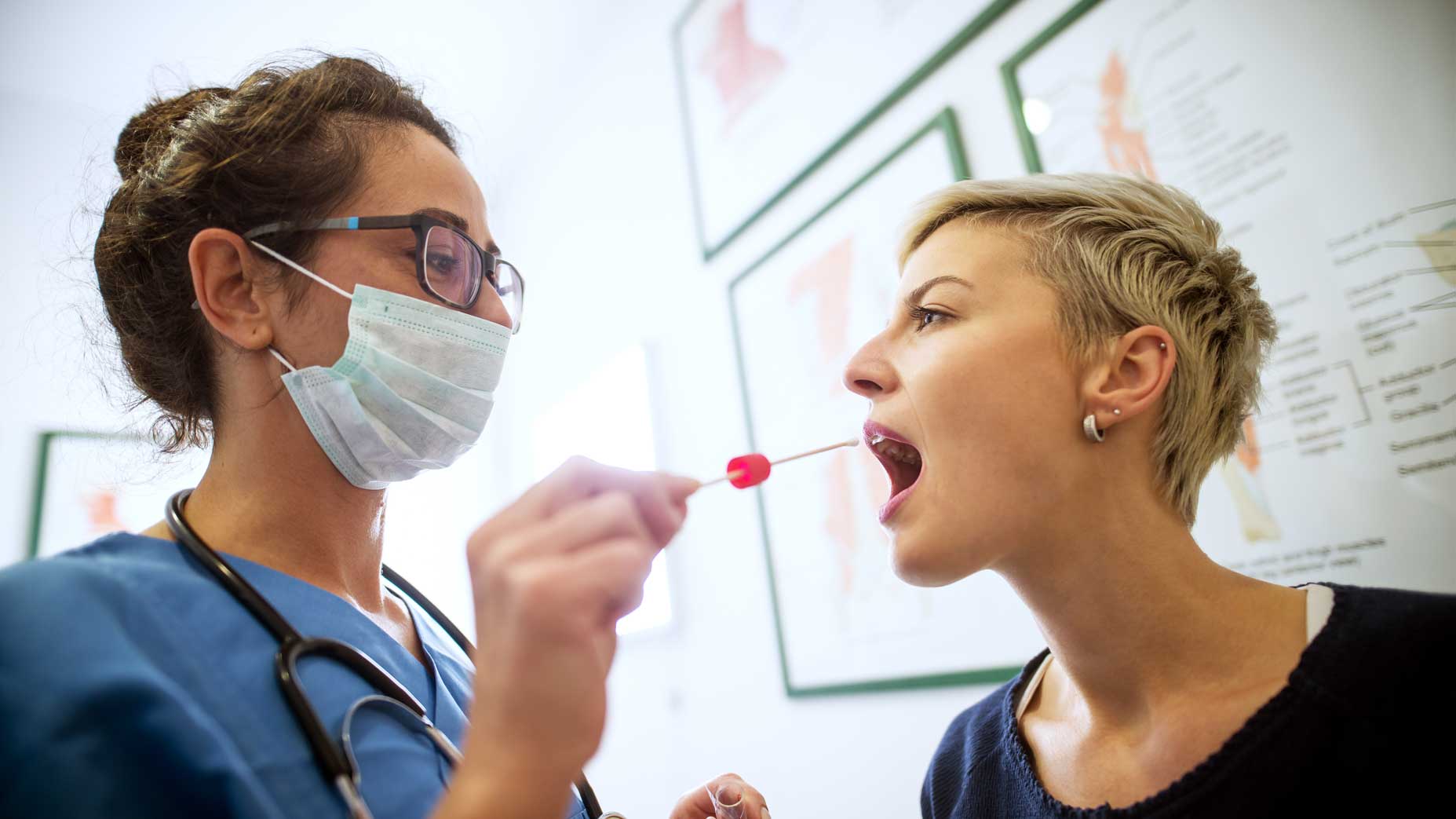[vc_row row_scroll_icon="no"][vc_column][vc_column_text][/vc_column_text][/vc_column][/vc_row][vc_row row_scroll_icon="no"][vc_column][vc_column_text]To fully understand how life-changing The Zamar Protocol ® (Precision guided high-dose thyroid hormones and rTMS protocol) treatment programme can be, it is first important to comprehend: The challenges and gaps in existing guidelines for treatment of bipolar disorder What treatment is currently standard and the evidence for its effectiveness What evidence there is for our groundbreaking bipolar treatment and how effective it is Why Is Evidence-Based Treatment So Important? Clinical guidelines are only as good as the evidence and judgments they are based on. For a treatment to be evidence-based, it must be backed up by research and studies to promote quality, effectiveness, and reduced likelihood of harm. This ensures treatments are safe, effective, and supported by a body of evidence. On this page, we explain in detail the traditional treatments available for the different types of bipolar disorder, what evidence there is for each type of treatment, and the evidence for our treatment programme. What Are The Current Treatment Recommendations For Bipolar Disorder? Bipolar UK Report 2022 The latest Bipolar UK report outlines the current state of care for bipolar sufferers in England. Professor Guy Goodwin, co-chair of The Bipolar Commission speaks of how he is shocked about the findings of the Bipolar Commission: “The failure to diagnose, treat and research the condition is disgraceful. People with bipolar deserve better – and must demand better.” A World Health Organisation (WHO) study found that over a lifetime, the burden of disability in bipolar spectrum disorder is greater than all forms of cancer, epilepsy, and all known neurological diseases including Alzheimers’s disease. Indeed, unlike many other severely disabling conditions, bipolar typically starts at a young age, continuing for life. There are three main types of bipolar disorder: Bipolar disorder type I, the classic form Bipolar disorder type II Subthreshold bipolar disorder (also known as Bipolar Disorder Not Otherwise Specified (BD-NOS) or unspecified bipolar disorder) which accounts for around 40% of people with major depression. Another large study of 43,000 people found that subthreshold hypomania is in more than 70% of pure clinical trial level major depressive disorder. Rapid cycling (4 or more distinct mood episodes over a year) can occur in all types of bipolar disorder. Bipolar UK Report 2022 The latest Bipolar UK report outlines the current state of care for bipolar sufferers in England. Professor Guy Goodwin, co-chair of The Bipolar Commission speaks of how he is shocked about the findings of the Bipolar Commission: “The failure...
[vc_row row_scroll_icon="no"][vc_column][vc_column_text] Understanding our bipolar disorder treatment programme results is important because it allows you to make an informed decision. We want to be transparent so that you can compare The Zamar Protocol ® (Precision guided high-dose thyroid hormones and rTMS protocol) programme to traditional treatments and make the right choice for you and your health. Read our recently published articles on our patented treatment here: https://www.mdpi.com/1861888 and https://www.mdpi.com/1832476. Here at The London Psychiatry Centre we strive for excellence. As such, our papers published in the International Journal of Psychiatry Research and the Journal of Clinical Medicine followed Johns Hopkins research methodology recommendations on outcomes research. For chronic conditions such as bipolar disorders, outcome research is considered the best way to look at the impact of an intervention. Our most recent published evidence-based paper is the first ever published study showing full recovery of severe mixed and depressive symptoms in all forms of bipolar disorders. The paper shows that with The Zamar Protocol ® (Precision guided high-dose thyroid hormones and rTMS protocol) programme:[/vc_column_text][/vc_column][/vc_row][vc_row row_scroll_icon="no" css=".vc_custom_1669711254555{margin-top: 20px !important;margin-bottom: 20px !important;}"][vc_column width="1/3" el_class="center"][vc_column_text]96.4% Of patients had full remission for an average of 2 years[/vc_column_text][/vc_column][vc_column width="1/3" el_class="center"][vc_column_text]1.8 The average number of drugs patients need with our treatment programme[/vc_column_text][/vc_column][vc_column width="1/3" el_class="center"][vc_column_text]58% of patients only needed 1 drug[/vc_column_text][/vc_column][/vc_row][vc_row row_scroll_icon="no" css=".vc_custom_1669711254555{margin-top: 20px !important;margin-bottom: 20px !important;}"][vc_column width="1/4"][/vc_column][vc_column width="1/4" el_class="center"][vc_column_text]1.29 Patients' average disability rating* reduced from 7.4/10 to 1.29/10[/vc_column_text][/vc_column][vc_column width="1/4" el_class="center"][vc_column_text]33% of patients had a disability rating* of 0 out of 10 after treatment[/vc_column_text][/vc_column][vc_column width="1/4"][/vc_column][/vc_row][vc_row row_scroll_icon="no"][vc_column][vc_column_text] *The Sheehan Disability Scale (SDS) disability rating is used to determine how serious symptoms and/or side effects are and how much they impact your life. [/vc_column_text][/vc_column][/vc_row][vc_row row_scroll_icon="no"][vc_column][vc_column_text]Simply put, our programme gets better results than traditional treatment. With traditional treatment, research shows there is: 41.8% recovery rate in bipolar type I and II only No remission in rapid cycling (Calabrese et al, Kemp et al) No remission in subthreshold bipolar (Ghaemi et al), the most common form of bipolar disorder (not a single study identified) No remission in subthreshold symptoms in bipolar type I and II (Garriga et al) With The Zamar Protocol ® (Precision guided high-dose thyroid hormones and rTMS protocol) programme there is: 96.4% recovery rate in a study including all three types of bipolar disorder (treatment-resistant bipolar disorder I, II, subthreshold, rapid cycling, and depression with agitation and racing thoughts whether it alternates or not with periods of flat depression with lethargy) Currently the only evidence-based treatment for subthreshold bipolar disorder. Not only is...
[vc_row row_scroll_icon="no"][vc_column][vc_column_text] We understand just how much bipolar disorder can impact your quality of life. We are committed to helping you recover and get your life back on track. Our Results Speak For Themselves… Simply put, our programme gets better results than traditional treatment. In fact, our patients frequently describe the results as ‘life changing’. Below you will find a brief overview of the differences between traditional treatment for bipolar and The London Psychiatry Centre’s treatment programme.[/vc_column_text][/vc_column][/vc_row][vc_row row_scroll_icon="no" css=".vc_custom_1669640588830{margin-top: 15px !important;}"][vc_column][vc_column_text] Traditional treatment vs. The Zamar Protocol ® (Precision guided high-dose thyroid hormones and rTMS protocol) treatment programme 41.8% recovery rate in bipolar type I and II only. No remission in rapid cycling (Besag et al, Calabrese et al). No remission in subthreshold bipolar (Gariga et al), the most common form of bipolar disorder, and subthreshold symptoms in bipolar type I and II (treatment-resistant bipolar disorder). 96.4% recovery rate in treatment-resistant bipolar disorder I, II, subthreshold, rapid cycling, and depression with agitation and racing thoughts (whether it alternates or not with periods of flat depression with lethargy). 80% of bipolar patients take on average 3.8 drugs 1.8 drugs needed on average 58% of patients only need 1 drug One size fits all Precision medicine personalised to you Drugs usually not well tolerated Drugs well tolerated for years Side effects that severely impact quality of life Minimal, if any, side effects with substantial improvement in quality of life [/vc_column_text][/vc_column][/vc_row][vc_row row_scroll_icon="no"][vc_column][vc_column_text]Read more detailed information about our treatment programme results here. We also explain the difference between traditional treatment and our programme in detail. We encourage you to browse the different pages we have in our bipolar clinic area to fully understand the research behind this treatment programme.[/vc_column_text][/vc_column][/vc_row][vc_row row_scroll_icon="no"][vc_column][vc_column_text] Patients treated at The London Psychiatry Centre, using a combination of precision medicine, rTMS and appropriate high-dose thyroid hormones, have recovered after years of unsuccessful treatment with traditional treatment. [/vc_column_text][/vc_column][/vc_row][vc_row row_scroll_icon="no"][vc_column][vc_column_text] The Evidence Details of how treatment works have been published in Frontiers. Our peer-reviewed paper “A New Treatment Protocol of Combined High-Dose Levothyroxine and Repetitive Transcranial Magnetic Stimulation for the Treatment of Rapid-Cycling Bipolar Spectrum Disorders: A Cohort Evaluation of 55 Patients” is the first ever published study showing full recovery of severe mixed and depressive symptoms in all forms of bipolar disorders most importantly subthreshold symptoms, the most common presentation of bipolar disorders which fails to respond to quetiapine and mood stabilisers. We explain the evidence in more detail here. rTMS At The London Psychiatry Centre When it comes to the rTMS side of our treatment programme, we are proud...
[vc_row row_scroll_icon="no"][vc_column][vc_column_text] What is Treatment-Resistant Depression (TRD)? TRD is depression that doesn’t get better, even with treatment. From a medical perspective, if you have depression that does not improve with at least 2 trials of antidepressants, you have TRD. The first step in the management of TRD is to reconsider the diagnosis even before giving rTMS or any other treatment, because bipolar disorders are very often misdiagnosed as treatment-resistant depression.[/vc_column_text][/vc_column][/vc_row][vc_row row_scroll_icon="no"][vc_column][vc_column_text] Many people diagnosed with major depression actually have subthreshold bipolar disorders. [/vc_column_text][/vc_column][/vc_row][vc_row row_scroll_icon="no"][vc_column][vc_column_text]For example, a study found that the majority (52% or more) of people diagnosed with depression in the U.K. actually have undiagnosed subthreshold bipolar disorder, but are considered to have treatment-resistant depression. A further study in the US found that 40% of people diagnosed with major depressive disorder also had symptoms of subthreshold hypomania. Another study of 43,000 people found more than 7 out of 10 of those with “pure major depression” have subthreshold bipolar disorder. In another study of 5,635 people, 16% of those with a major depressive episode fulfilled the criteria for bipolar type I or II. In addition, about a third of those with major depressive disorder convert to bipolar disorder with time. Learn about the different types of bipolar disorder. Why is this relevant? Because treatments for depression can harm people with bipolar disorder. Treatment for depression normally involves talking therapy and antidepressants. But for those with bipolar disorder misdiagnosed as TRD, the use of antidepressants can make their condition worse in the long run and increase mood cycling. Research has shown that the use of antidepressants, whether short-term or long-term, can worsen bipolar symptoms and be counterproductive, even harmful. With that in mind, we recommend that antidepressants should not be used for bipolar – even with mood stabilisers and antipsychotics. This is in keeping with current guidelines and follows on from the landmark STEP-BD study on bipolar treatment. CBT is not the answer either. Indeed, in the largest and longest study of CBT in bipolar disorders (which excluded rapid cyclers), CBT was found to be no more effective than treatment without it, and may actually make the condition worse. In short, bipolar disorder is different to depression and requires different treatment. So if you have been diagnosed with depression or TRD, have tried multiple antidepressants but have not improved, or have gotten worse, it may be time to ask if you could have a bipolar spectrum disorder. For an in-depth look...
[vc_row row_scroll_icon="no"][vc_column][vc_column_text][/vc_column_text][/vc_column][/vc_row][vc_row row_scroll_icon="no"][vc_column][vc_column_text]Our unique, sought-after bipolar spectrum disorder and treatment-resistant depression treatment programme could help you get your life back. Developed by Dr Andy Zamar, The Zamar Protocol ® (Precision guided high-dose thyroid hormones and rTMS protocol) treatment programme combines precision medicine and mitochondrial treatment with guided High-Dose Levothyroxine and repetitive Transcranial Magnetic (rTMS) stimulation. Read our recently published articles on our patented treatment here: https://www.mdpi.com/1861888 and https://www.mdpi.com/1832476.[/vc_column_text][/vc_column][/vc_row][vc_row row_scroll_icon="no" css=".vc_custom_1669289984590{margin-top: 30px !important;margin-bottom: 30px !important;}"][vc_column width="1/3"][vc_column_text el_class="center"] 96.4% success rate [/vc_column_text][/vc_column][vc_column width="2/3" el_class="center-mobile"][vc_column_text]The Zamar Protocol ® (Precision guided high-dose thyroid hormones and rTMS protocol) treatment programme has a 96.4% rate of full recovery with no symptoms left, and few side effects, if any – results not seen with traditional treatment[/vc_column_text][/vc_column][/vc_row][vc_row row_scroll_icon="no"][vc_column][vc_column_text]Find out more about our treatment results. Is Our Treatment Programme Suitable For You? The Zamar Protocol ® (Precision guided high-dose thyroid hormones and rTMS protocol) patented bipolar disorder treatment programme is suitable for you: If you suffer from bipolar I or II and you are not symptom-free. If you suffer from depression or treatment-resistant depression and suspect that you may suffer from bipolar disorder. A useful test for this is the HCL-32. If you score 14 and above, there is a 80% chance that you could have bipolar disorder. If you suffer from subthreshold bipolar disorder or treatment-resistant depression (40% of those diagnosed with depression actually have subthreshold bipolar disorder and 16% have type I or type II). If you chart your mood (you can use this mood chart) and find there are significant mood changes in your depression. If you have depression with crowded or racing thoughts (relentless, rapid thinking). If you have depression with agitation (with or without racing thoughts). Learn more about types of bipolar disorders and precision medicine.[/vc_column_text][/vc_column][/vc_row][vc_row row_scroll_icon="no"][vc_column][vc_column_text] [/vc_column_text][/vc_column][/vc_row][vc_row row_scroll_icon="no" content_aligment="center"][vc_column][eltd_icon icon_pack="linear_icons" linear_icon="lnr-phone" size="eltd-icon-medium" type="normal" icon_animation=""][vc_column_text]If you would like more information about our bipolar disorder treatment programme or would like to speak to a member of our team about booking a consultation, please don’t hesitate to call us on 020 7580 4224.[/vc_column_text][/vc_column][/vc_row]...
[vc_row row_scroll_icon="no"][vc_column][vc_column_text][/vc_column_text][/vc_column][/vc_row][vc_row row_scroll_icon="no"][vc_column][vc_column_text]In mental health it is difficult to predict with certainty how long a treatment will take for a patient to reach remission. In some cases, a patient may reach remission sooner than the average stated period, whilst others may take longer to achieve remission. Before commencing this treatment programme we would encourage you to consider the long-term cost of treatment. Here, we break down how much it will cost. Once you have begun the treatment programme it is likely that you will be required to continue with Levothyroxine for the foreseeable future, should it prove effective for you. This will require you to attend The London Psychiatry Centre for review a minimum of every three months once remission is reached. Our paper, published in the Journal of Clinical Medicine, shows that 50% of patients will reach remission in 10.6 weeks with about 8 weeks of Repetitive Transcranial Magnetic Stimulation (rTMS) and continued high-dose Levothyroxine in the maintenance phase of rTMS. We recommend rTMS for 8 weeks or 40 sessions in those with severe or resistant symptoms, although in some cases more may be needed. Your consultant will be able to discuss with you in more detail some examples of treatment lengths they have previously experienced. We also have patients that have reached remission using this plan that can provide you with details of their experiences. Referrals To Other Specialists All mood disorder patients must be seen by a cardiologist as 4 in 10 of those with bipolar disorder suffer early death by 10 years from heart disease. We are the only clinic in the UK to take this preventive step routinely with all our patients. During the treatment programme it may also be recommended that you are monitored and reviewed by an endocrinologist. We can make a referral to these specialists on your behalf, however you are free to see whom you choose. The London Psychiatry Centre does not have any financial affiliation with these professionals. We do, however, refer to them regularly and they are familiar with the treatment plan. We are unable to provide any guide as to the costs of consultations or any tests they may recommend as it would depend on who you choose to see and their professional opinion. Insured Patients Please be advised that The London Psychiatry Centre operates a pay and claim back policy for insurers/third parties. This means that we will not make any claims directly to an insurer...
[vc_row row_scroll_icon="no"][vc_column][vc_column_text][/vc_column_text][/vc_column][/vc_row][vc_row row_scroll_icon="no"][vc_column][vc_column_text]The Zamar Protocol ® (Precision guided high-dose thyroid hormones and rTMS protocol) patented bipolar treatment programme begins with an expert assessment from Dr Andy Zamar, an internationally-renowned authority in treatment-resistant affective disorders. Dr Zamar invented the protocol for our treatment programme. Read our recently published articles on our patented treatment here: https://www.mdpi.com/1861888 and https://www.mdpi.com/1832476. Your appointment with Dr Zamar will be up to 1 hour and 30 minutes. It will include: A unique psychiatric evaluation assessing for subthreshold symptoms An assessment for High-Dose Levothyroxine (HDL) which will include: Genetic testing (mouth swab) Blood analysis An electrocardiogram (ECG) Detailed written report Following this appointment, you will receive a report which will detail your condition and treatment plan. If Dr Zamar assesses you are suitable for our treatment programme, he will refer you to another consultant (your treating consultant) at The London Psychiatry Centre who will see you through the programme. You will see this consultant weekly for monitoring and tests as required. If you are already a patient being treated by a consultant at The London Psychiatry Centre and they think you could benefit from high-dose Levothyroxine added to your treatment, you will need to have Dr Zamar’s opinion before you start the treatment. If a treatment threshold is reached, you may also need to see Dr Zamar for further assessment. Your treating consultant can discuss this with you in more detail. If you would like to remain under Dr Zamar’s care, the costs of the consultations are higher (please see our How Much Will It Cost? and Fees pages). Following the results of your initial tests, your treating consultant will be able to provide you high-dose Levothyroxine, personalised to your body’s needs. Some patients will also need one additional medication. If you suffer from treatment-resistant bipolar type I, you may need an additional two medications. You will need to attend the clinic for your course of Repetitive Transcranial Magnetic Stimulation (rTMS) treatment. The exact length of this will vary between individuals, but a usual time frame is around 8 weeks. Can I Opt For Only Part of the Treatment Programme? You can choose to see a consultant and opt for rTMS alone, but if you do not recover and require high-dose Levothyroxine, you will need to see Dr Zamar. Our success rates using both rTMS and high-dose Levothyroxine are substantially higher (96.4%) than using rTMS alone (59% of women, 62% of men), or high-dose Levothyroxine alone (which...
[vc_row row_scroll_icon="no"][vc_column][vc_column_text][/vc_column_text][/vc_column][/vc_row][vc_row row_scroll_icon="no"][vc_column][vc_column_text] How does The Zamar Protocol ® work? In this Frontiers medical journal paper you will see the mechanism of action explained, as well as the basis for the effectiveness of the treatment outlined. We understand just how severely bipolar spectrum disorder and other mood disorders can impact your life. We can help you get your life back with our much sought-after The Zamar Protocol ® (Precision guided high-dose thyroid hormones and rTMS protocol) patented treatment programme. Read our recently published articles on our patented treatment here: https://www.mdpi.com/1861888 and https://www.mdpi.com/1832476. What Is Our Treatment Programme? Featured in The Maudsley Prescribing Guidelines in Psychiatry (15th edition) is the gold-standard handbook on the safe and effective prescribing of psychotropic agents. It is used worldwide to help guide clinicians in providing the every best evidence-based care. The Zamar Protocol ® (Precision guided high-dose thyroid hormones and rTMS protocol), developed by Dr Andy Zamar, and available exclusively at The London Psychiatry Centre, has been listed as a treatment option for rapid-cycling bipolar affective disorder and atypical depression. Developed by Dr Andy Zamar, our treatment programme combines precision medicine-guided High-Dose Levothyroxine (HDL) and mitochondrial treatment with repetitive Transcranial Magnetic Stimulation (rTMS). Our patients frequently describe the results as ‘life changing’. Patients report a substantial improvement in quality of life, with 96.4% of patients experiencing full remission for a period of 2 years (not because they relapsed after 2 years but because the observation period ended). We explain the difference between our treatment programme and traditional treatment here. The London Psychiatry Centre has been the first to successfully apply the precision medicine technique to mental health – specifically bipolar disorder type II and subthreshold bipolar disorder, as well as subthreshold symptoms in bipolar disorder type I and II – particularly in those patients who have four or more mood changes in a year (rapid cycling). Dr Zamar has lectured for the World Psychiatric Association twice on the subject and has published work in many respected journals, including Frontiers and The Journal of Clinical Medicine. Why choose us? What Makes Our Treatment Programme Unique? Simply put, The Zamar Protocol ® (Precision guided high-dose thyroid hormones and rTMS protocol) programme gets better results than traditional treatment. With traditional treatment, research shows there is: 41.8% recovery rate in bipolar type I and II only No remission in rapid cycling (Calabrese et al, Kemp et al) No remission in subthreshold bipolar (Ghaemi et al), the most common form of bipolar disorder (not a...
[vc_row row_scroll_icon="no"][vc_column][vc_column_text] rTMS (repetitive Transcranial Magnetic Stimulation) is a highly effective, non-invasive and painless drug-free treatment for treatment-resistant depression (TRD). Treatment-resistant depression (TRD) is defined as depression which does not improve with at least 2 trials of antidepressants. Our bipolar disorder treatment programme utilises rTMS to effectively treat the depressive phases of bipolar spectrum disorder. The London Psychiatry Centre pioneered its use in mixed, depressive and rapid cycling phases as well as resistant symptoms of all forms of bipolar disorders and depressive disorders. [embed width="425" height="239"]https://www.youtube.com/watch?v=meJ-brFjSHE[/embed] Video: rTMS – Depression Treatment Without Medication The London Psychiatry Centre was the first clinic in the UK to introduce rTMS to patients and it has some of the highest – peer reviewed and published – success rates in the country. Why? We use The Zamar Protocol ® (Precision guided high-dose thyroid hormones and rTMS protocol), patented and exclusive to our centre, that gets better results than traditional treatment, and better results than other clinics offering rTMS. Read our recently published articles on our patented treatment here: https://www.mdpi.com/1861888 and https://www.mdpi.com/1832476. Key facts about rTMS at The London Psychiatry Centre: We are the only clinic to publish its rTMS results in open access peer-reviewed journals We are the only clinic to have advised the National Institute for Clinical Excellence (NICE) on rTMS We have been providing rTMS treatment since 2012, 4 years earlier than any other clinic in the UK [/vc_column_text][/vc_column][/vc_row][vc_row row_scroll_icon="no"][vc_column][vc_column_text]To learn more about the effectiveness of our rTMS protocol and a breakdown of success rates compared to other clinics, click here. Why Don’t We Use Antidepressants? Apart from side effects and long-term harms including a mortality rate increase of 33%, osteoporosis and fractures, bleeding and withdrawal symptoms, research has shown the recovery rate with antidepressants to be meagre. And indeed, up to 40% of those diagnosed with major depression actually have a type of bipolar disorder (Bipolar disorder I, II, or subthreshold bipolar disorder). Research shows us that for those with bipolar disorder, taking antidepressants can exacerbate symptoms. How Does rTMS Work? rTMS increases the frequency and number of signals to the brain that govern mood, through the use of a pulsed magnetic field which is placed against the scalp. rTMS treatment is an effective, drug-free solution for those whom antidepressant medications and traditional therapies have been unable to provide satisfactory relief. Our rTMS clinic area is packed with lots of detailed information on this treatment.[/vc_column_text][/vc_column][/vc_row][vc_row row_scroll_icon="no" content_aligment="center" css=".vc_custom_1669641674720{margin-top: 20px !important;}"][vc_column][eltd_icon icon_pack="linear_icons" linear_icon="lnr-phone" size="eltd-icon-medium"...
[vc_row row_scroll_icon="no"][vc_column][vc_column_text] Moving away from ‘one size fits all’, precision medicine is a personalised method of medical treatment which is currently used to treat some cancers. The approach takes into account that each person is an individual and will not have the same genetic makeup as another. By analysing a patient’s individual genetic characteristics, we can predict their medication compatibilities and tailor more effective treatments for them. This is a step ahead of testing patients genetically to see how they tolerate drugs like antidepressants or antipsychotics. With our approach, The London Psychiatry Centre has been successful in determining the best minimal or side effect-free treatments for our patients. We not only look for medication which suits you, we look for genetic mutations which are responsible for your illness and we developed methods to treat the condition accounting for these genetic mutations. This is a feature unique to our approach which no other clinic in the world has developed. We look not only at how thyroid hormone is metabolised (pharmacodynamics) but also how it moves in the body (pharmacokinetics). We use precision medicine to identify bipolar spectrum disorder in depression sufferers (up to 7 in 10), including treatment-resistant cases who have inefficient thyroid activating enzymes deiodinase 1 and deiodinase 2, as well as the protein transporter of thyroid hormones into the brain. These patients are unable to transport and activate normal levels of thyroid hormone in the brain. For these patients we can effectively predict how they will respond to treatment and target treatment based on their genetic profile. The London Psychiatry Centre has been the first to successfully apply the precision medicine technique to mental health – specifically bipolar disorder type II and subthreshold bipolar disorders, as well as subthreshold symptoms in bipolar disorder type I and II – particularly in those patients who have four or more mood changes in a year (rapid cycling). The team behind this discovery is led by Consultant Psychiatrist, Dr Andy Zamar, Consultant Endocrinologist, Dr Abbi Lulsegged, and Consultant Cardiologist, Dr Robin Roberts from The London Psychiatry Centre. Together, our team has pioneered an effective new treatment protocol which combines: precision medicine; mitochondrial treatment (for the cells’ energy centres); High Dose Levothyroxine (a replacement for an essential thyroid hormone) and; rTMS (Repetitive Transcranial Magnetic Stimulation), a non-invasive treatment for depression without drugs.[/vc_column_text][/vc_column][/vc_row][vc_row row_scroll_icon="no"][vc_column][vc_column_text] [/vc_column_text][/vc_column][/vc_row][vc_row row_scroll_icon="no"][vc_column][vc_column_text css=".vc_custom_1669286867485{margin-bottom: 15px !important;}"] Treatment for bipolar disorder with minimal side effects – this is life-changing news...

